Teaching standards doesn't necessitate a standardized approach to teaching. Teachers share ideas for providing a standards-based, but authentic learning experience for all students.
Get Started for FREE
Sign up with Facebook Sign up with X
I don't have a Facebook or a X account
 Your new post is loading... Your new post is loading...
 Your new post is loading... Your new post is loading...

Darren Smith's curator insight,
March 14, 2013 12:04 AM
Love this. professional Learning Teams can benefit from this.
Nancy Jones's comment,
March 14, 2013 11:53 AM
Love it. Thanks, as always , for sharing all this great stuff:)
|

Kirsten Macaulay's curator insight,
January 24, 2014 4:36 AM
Good start. Also relevance to the student. 
Leslie Minton's curator insight,
January 24, 2014 7:52 AM
Rigor across curriculum content, not just a particular subject matter is essential to effective teaching and learning. It is knowing what rigor is in order to determine if it exists.
Nancy Jones's curator insight,
January 24, 2014 8:59 PM
This iactually the second article of a series . This is a word used frequently, but it's definition varies. I think rigor need to also differentiate , say, reading levels so each learner is challenged from the level they are currently at. Rigor does not mean, "one size fits all!"

Monica S Mcfeeters's curator insight,
February 4, 2013 12:59 PM
How do you test creativity and innovation using "set" core standards of evaluation? Creativity and innovation require a certain amount of willingness for failure and risk taking. How does training for common core test "standards" assist that higher level goal? |





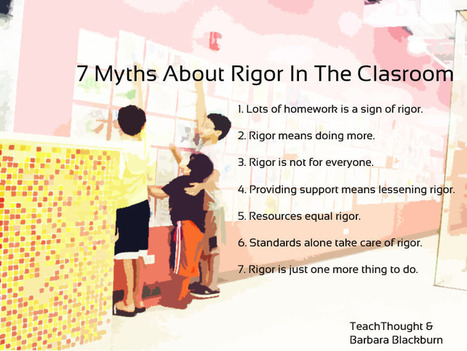

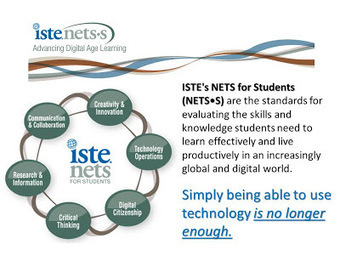
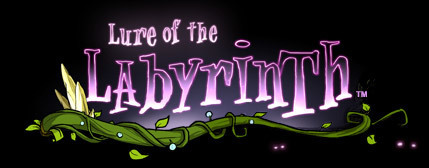
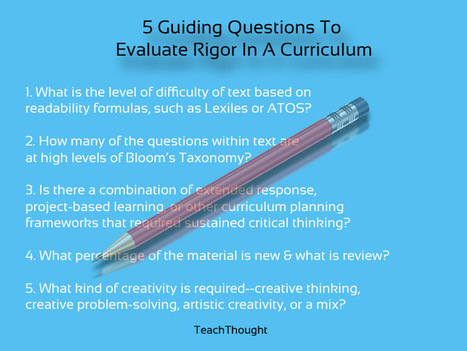

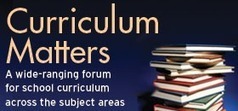
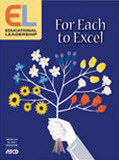





Wonderful article that points out some of the challenges of Standards Based Learning as well as ways that instructors can maintain their own unique teaching styles and interests. Great article for discussion in PD meetings, online learning, and teacher prep courses!